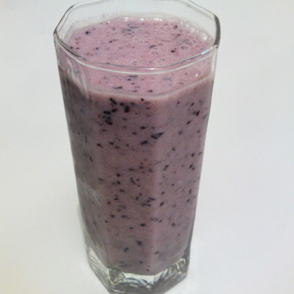
Vitamins
Betacarotene - Overdosage, Toxicity, Interactions and Cautions
Betacarotene sub-menu
Date reviewed: 7 July 2015 | Date updated: 7 July 2015
Toxicity
When betacarotene supplementation is over 15mg, it must be given with supplementation of the following antioxidants too- vitamin A, vitamin C, vitamin E, zinc, selenium and possibly co-enzyme Q10 to reduce any possible toxicity effects.
Betacarotene can produce reversible toxicity at doses greater than 60mg per day.
Overdosage
Betacarotene is a really safe vitamin, even in relatively high doses, but extra high supplements of this vitamin can cause the following side effects:
- Hypercarotenaemia (yellow-orange colouring of the skin)
- Enlarged liver
- Lower blood pressure
- Weakness
- Weight loss
Betacarotene is in general, a non-toxic vitamin and even if the side effects listed above should occur, they will only be temporary and will not usually cause any lasting effects.
Cautions
Certain people should not take high levels of betacarotene supplements without first consulting their doctor for advice:
- Current and former heavy smokers - a fairly recent large study (in 1996), the CARET (beta-Carotene and Retinol Efficacy Trial) tested betacarotene as well as vitamin A supplements in people who were at high risk for lung cancer — such as smokers and former smokers. The study was conducted to determine if betacarotene and vitamin A had anti-cancer protective effects on the lungs of these study subjects, because it was already known that people who had a diet high in fruits and vegetables rich in betacarotene had a lowered risk for lung (and other) cancers. Unfortunately, the study was stopped before it was completed because it was discovered that the individuals taking the betacarotene supplements (they took up to 30mg per day) had a higher incidence of lung cancer and higher mortality rate than the individuals who were taking a placebo (no betacarotene supplement).
- Current and former heavy drinkers - the CARET study also tested betacarotene and vitamin A on current and former heavy drinkers, alcoholics and found the same results as for smokers - the betacarotene supplements provided in the sudy seemed to enhance the development of lung and other cancers. The study was stopped and the authors advised people who were current or former heavy drinks to not take betacarotene supplements and to get their intake from food sources..
- People that have been exposed to asbestos - similary, people who had been exposed to asbestos were part of the CARET study and the same types of results occured for those people too and they were similarly advised not to take betacarotene supplements, but to instead get their intake from food sources.
Interactions
The following are the medications and supplements that are more likely to cause a reaction with betacarotene supplements:
- Vitamin E - vitamin E supplements work very synergistically with betacarotene supplements, but when the intake of vitamin E supplements is at very high levels, they can deplete the betacarotene stores in the liver and cause a deficiency.
- Olestra fat substitute - the fat substitute olestra will decrease the absorption, effectiveness and action of any betacarotene supplements, so it is advisable not to eat this fat substitute if taking betacarotene supplements.
Comments
Nutrition
Health Tools
Most popular website content

-
Silica
Silica is a trace mineral, good for the skin, bones and teeth...more 
-
Labyrinthitis
Labyrinthitis is a disease of the inner ear, causing swelling and pain...more 
-
Calorie Intake
The recommended daily intake of calories is different for each age group and gender...more

 Basics recipes
Basics recipes Breakfast recipes
Breakfast recipes Dessert recipes
Dessert recipes Dinner recipes
Dinner recipes Lunch recipes
Lunch recipes Snacks recipes
Snacks recipes



